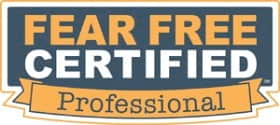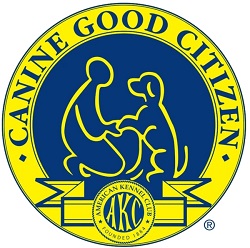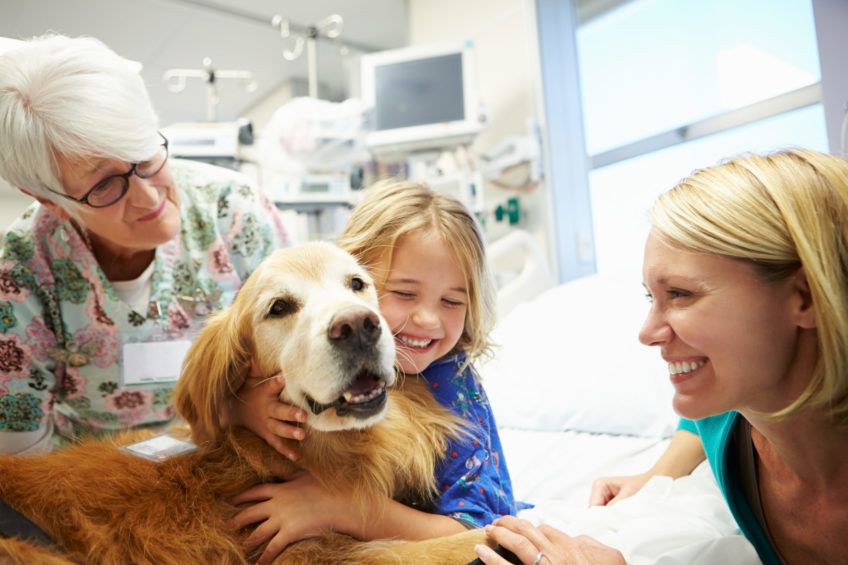
Therapy Dog Training Near Me by Los Angeles Fun Paw Care
If you are looking for therapy dog training near me, you have found the very best therapy dog training Los Angeles California has to offer.
The Standard of Expert Los Angeles Therapy Dog Training Near You
You and your dog will learn more in one week (or longer!) than you ever thought possible!
Russell has been appointed by two consecutive Mayors, as a member & liaison of the Disability Access Committee (D.A.C.) for his therapy dog training and community leadership expertise. Russell offers therapy dog training, emotional support animal training, and service dog training near you.
List of all recommended therapy dog, and pet products we use and recommend
Would you like your dog to go to hospitals, senior centers, and schools to help those in need benefit from your certified therapy dog? Training nearby for therapy dog certification will set you and your dog up for success.
Russell has been awarded Canine Good Citizen (CGC) Evaluator and STAR Puppy Evaluator by the American Kennel Club (AKC) for decades. Although Fun Paw Care does not support the AKC, we train dogs to a high degree of proficiency to meet higher standards than their Canine Good Citizen certification test and evaluate and test them after they have been sufficiently trained. Setting a standard higher than being a CGC shows a commitment that you are a responsible pet guardian and that your pet exhibits exceptional manners, and behavior, and is well trained.
The CGC and similar designated criteria are regarded by many pet professionals as the stepping stone to becoming a Therapy Dog.
If your dog passes, they will receive a Therapy Dog Certification. Please see our more intense first-class therapy dog Boot Camp training. Los Angeles parents that want to focus on a specific behavior or training issue or who want to speed up their therapy dog training would benefit from Therapy Dog Boot Camp.
Overview of Fun Paw Care’s Therapy Dog Training Dog Training Options
(Jump Down List)
- Option 1: Therapy Dog Boot Camp (Board & Train)
- Option 2: Therapy Dog Online Dog Training Classes & Answers to All Therapy Dog Questions
- Option 3: Therapy Dog Behavior Modification, Troubleshooting & Obedience Training (Members Only)
- Therapy Dog Training FAQs
As a renowned dog behavior expert and dog trainer of 30+ years, Certified Dog Trainer, Behaviorist and Nutritionist, Russell Hartstein can strengthen your dog-human bond and teach you how to solve your dog’s behavior problems.
Russell’s wide range of positive reinforcement dog training services includes Emotional Support Dog Boot Camp (Board and Train), Puppy Training, Behavior Modification Consultations and long-term Obedience Training. Russell offers dog training services throughout the Greater Los Angeles area.
Things you can expect less of include, dog aggression, dog biting, dog barking, dog separation anxiety, dog potty training accidents, leash pulling, general destruction of property, and dog behavior problems. Things you can expect more of include peace and quiet, mellow playtime, relaxing walks, better dog habits, better sleep for both of you, improved communication, and a deeper loving bond and understanding of your best friend.
Contact Fun Paw Care to see what the best dog trainer in LA can do for you.
Read on to find out more about each of our 3 specific dog training services.
The Standard of Therapy Dog Training in Los Angeles
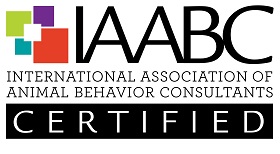

Option 1: Therapy Dog Boot Camp Los Angeles
(Our most popular service, in Russell’s five-acre fully fenced in dog boarding and training school near you)
Our Los Angeles Dog Boot Camp (Board and Train) is designed for dogs that require extra work in certain problem areas or that have special needs. Our Dog Boot Camp lasts for a week or longer. Therapy Dog and Emotional Support Dog Boot Camp is designed for extra busy dog parents that don’t have either the time, expertise, or skill to work with their dog and want a Certified Dog Behaviorist, Trainer, and Nutritionist to do most of the heavy lifting. Please see our Los Angeles board and train page for details.
Option 2: Online Therapy Dog Trainer Classes & Answers to All Therapy Dog Questions
(Online, one-on-one with Russell)
Whether you live in Greater Los Angeles, live elsewhere, or travel a lot, the best therapy dog trainer is only as far as your device of choice. Fun Paw Care’s Fear-Free Certified Dog Trainer, Behaviorist, and Nutritionist, Russell Hartstein can meet all of your therapy dog training and behavioral needs through an online therapy dog training session. We offer remote classes via phone or video chat. Russell will walk you through the same steps that he would if he were in your home doing a private one-on-one therapy dog training or behavior modification session.
1 Hour – $495
(In addition to the one-hour session, you receive a detailed therapy dog training and behavior analysis plan with abundant supporting resources)
*Platinum Club Members receive complimentary Phone/Video Consultations
Option 3: Los Angeles Therapy Dog Behavior Modification, Troubleshooting & Obedience Training Near You
(In dog parent’s home)
If you are looking to train your dog to become a therapy dog and need a dog behavioral problem solved, you have come to the right place. As Certified Los Angeles dog trainers and behaviorists, we use the science of learning, ethology (the study of species-specific behavior), and cognitive ethology to help our clients compassionately and gently improve their therapy dogs’ behavior and emotion.
Our Behavior Modification service is appropriate for aggressive dog training and all therapy dog behavior issues, from mild to serious types of dog behavior problems and disorders. Our methods are humane, non-confrontational, Fear-Free Certified, and designed to decrease household stress and improve the human-dog bond.
We use non-aversive, positive reinforcement dog training and gentle methods to improve your dog’s behavior. We show parents how to recognize, handle and modify their body language, behavior, energy, and environment in ways that help your dog learn at the fastest rate possible.
Russell uses Clicker/Marker training which is an operant conditioning method that creates a reward-based relationship between dog and dog parent. We recommend this advanced method for all pets, especially dogs that demonstrate nervous tendencies or those that need to build confidence and independence. It is also great for teaching fun skills and necessary obedience for a therapy dog tests such as Sit, Stay, Sit – Stay, Down, Down – Stay, Stand. Stand-Stay, Recalls, Loose Leash Walking, Heeling, Play Dead, Drop-It and Leave It.
We use an evidence-based approach, gentle and force-free methods, and positive reinforcement. These combine operant conditioning, classical conditioning, counter-conditioning, desensitization, and habituation, all of which help remedy mild and severe cases of fear aggression in dogs.
Our approach also remedies therapy dog behavior problems like:
- Dog biting, nipping, growling, lunging, snarling, etc.
- Dog barking
- Dog potty training
- Leash pulling
- Destructive behavior, indoors or outdoors
- Begging for food (like during mealtime)
- Bolting out the door
- Jumping on people
- Over-arousal
- Dog aggression (dog-dog, dog-cat, and dog-human)
- Territorial aggression
- Resource guarding (toys, food, bed, room, parent, etc.)
- General anxiety
- Dog fear, anxiety, stress and phobias of noises, people, other animals, objects, storms and/or walks
- Separation Anxiety Disorder, separation distress, isolation distress and similar problems when left home alone or with another person
- Obsessions/Canine Compulsive Disorder (e.g. balls, dog toys, vacuums, shadows, dogs, cats, squirrels, etc.)
- Wheel phobias (bicycles, skateboards, rollerblades, cars, etc.)
- Noise phobias and all types of dog fear, anxiety, stress, and arousal.
- All canine cognitive and emotional issues
- New pet consultations (dog-dog, dog-human, & dog-cat introductions)
In addition, we will show you:
- How to detect signs of stress and aggression in dogs
- How to stop dog aggression before it starts
- How to solve leash aggression in dogs (aka leash reactivity)
- How to stop pet aggression towards other animals
- How to solve dog food aggression
- How to solve resource guarding
- How to stop your dog from chasing the mailman, UPS driver, etc.
- How to solve dog behavior problems
Therapy Dog Training Los Angeles Prerequisite:
- Completed at least one week of Therapy Dog Boot Camp
- Enrolled in Russell’s exclusive Members-only Club
*In addition to the one-hour session, you receive a detailed therapy dog training and behavior analysis plan with abundant supporting resources
*Members Only
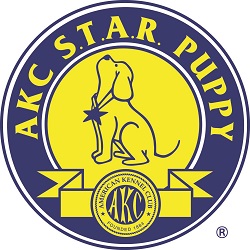
Therapy Dog Certification Training Program
CGC Testing and Therapy Dog Training Items:
Before taking the Canine Good Citizen test, parents will sign the Responsible Dog Parents Pledge. Being a responsible dog parent is an integral part of the CGC dog training test whereby parents agree to take care of their dog’s safety, health needs, exercise, training, and quality of life. In addition, parents show responsibility by doing things such as never letting dogs infringe on the rights of others and cleaning up after their dogs in public places.
Once the Responsible Dog Parent Pledge is signed, parents and their dogs are ready to take the dog training test. Items on the Canine Good Citizen Test include:
- Accepting strangers – The dog will allow a friendly stranger to approach him/her and naturally speak to the handler. Ignoring the dog, the dog trainer/evaluator walks up to the dog and handler and greets the handler in a friendly manner. The dog trainer/evaluator and handler shake hands and exchange pleasantries. The dog must show no sign of shyness or resentment and must not break position or try to approach the dog trainer/evaluator.
- Sitting politely for petting– The dog will allow a friendly stranger to touch him/her while he/she is with their handler. To begin the exercise, the dog must be sitting at the handler’s side then the dog trainer/evaluator pets the dog on the head and body. The dog may stand in place as he/she is petted. The handler may talk to their dog throughout the exercise. The dog must not show any resentment or shyness.
- Grooming and appearance– The dog will welcome being examined and groomed and will permit someone, such as a veterinarian, groomer, or a friend, to do so. This challenge also demonstrates the parent’s care, concern, and sense of responsibility.
The dog trainer/evaluator inspects the dog to determine if it is groomed and clean. The dog must appear to be in healthy condition (i.e., clean, healthy, proper weight, and alert). The dog handler should supply the brush or comb commonly used on the dog. The dog trainer/evaluator then gently brushes or combs the dog. In a natural manner, the dog trainer/evaluator will gently examine the ears and gently lifts up each foot. It is not necessary for the dog to hold a specific position during the examination and the handler may praise the dog, talk to the dog, and give encouragement throughout the test.
- Loose leash walking– This challenge demonstrates that the handler is in control of the dog. The dog’s position should leave no doubt that the dog is attentive to the handler, changes of direction, and is closely responding to the handler’s movements. The dog may be on either side of the handler. The dog does not need to be perfectly aligned with the handler and does not need to sit when the handler stops.
The dog trainer/evaluator may use a pre-plotted course or may direct the dog/handler team by issuing instructions or cues. Regardless of the course, there should be a left turn, right turn, and an about turn with at least one stop in between and another at the end. The handler may praise the dog, talk to the dog along the way, or give cues or requests in a normal tone of voice. The handler may also ask the dog to sit at the halts if desired.
- Walking through a crowd– This challenge demonstrates that the dog is under control in public places can move about politely amongst people and pedestrian traffic. The dog and handler must walk around and pass close to several people (at least three). The dog may show some interest in the strangers but should continue to walk with the handler. There should be no sign of over-exuberance, resentment, or shyness. The handler may encourage the dog, talk to the dog, or praise the dog throughout the challenge. The dog should not strain on the leash or jump on people.
- Sit, Down and Stay on request– Prior to this test, the dog’s leash is replaced with a 20 – foot lead. The dog must demonstrate that he/she has training, will respond to the handler’s requests to sit, down, and stay in the place requested by the handler (sit or down position, whichever the handler prefers). The dog must perform sit and down on request, then the stay.
The parent chooses the position for the stay. The handler may take a reasonable amount of time and use more than one cue to get the dog to sit and then down. The dog trainer/evaluator will determine if the dog has responded to the handler’s requests.
The handler may touch the dog to offer gentle guidance but may not force the dog into position. When instructed by the dog trainer/evaluator, the handler asks the dog to stay and walks forward the length of the 20 – foot line, turns, and returns to the dog at a natural pace. The dog must remain in the place in which it was left (it may change position) until the dog trainer/evaluator instructs the handler to release the dog. It is acceptable to release the dog from the front or the side.
- Recall– This challenge demonstrates that the dog will come when called by the handler. The handler shall walk 10 feet from the dog, turn to face the dog, and call the dog. The handler may use encouragement to get the dog to come. Handlers may simply walk away giving no instructions to the dog or choose to tell the dog to “wait” or “stay.”
- Reactivity to other dogs– This challenge demonstrates that the dog does not have aggression to other dogs can behave politely around other dogs. Two handlers and their dogs approach each other from a distance of approximately 20 feet, stop, shake hands, chat, and then continue for about 10 feet. The dogs should show no more than casual interest in one another or the other human. Neither dog should approach the other dog or its handler.
- Reactivity to distractions– This challenge demonstrates the level of confidence the dog has. The dog should be calm at all times when faced with common distracting situations. The dog trainer/evaluator will choose and present two distractions.
Examples of distractions may include rolling a crate dolly past the dog, dropping a chair, dropping a cane or crutch, or having a jogger run in front of the dog. The dog should not show aggressiveness, bark, panic, or try to run away but may express natural interest and curiosity and/or may appear slightly startled. The handler may encourage and or praise the dog throughout the exercise or talk to the dog.
- Supervised separation– This challenge demonstrates that a dog does not have separation anxiety does not bark and can be left with a trusted person and will maintain dog training and good manners. Dog trainers/evaluators are encouraged to ask something similar to, “Would you like me to watch your dog?” and then take control of the dog’s leash. The parent will then go out of sight for three minutes.
The dog does not have to stay in one position but should not continually whine, pace excessively, bark, or show anything other than mild agitation or nervousness. Dog trainers/evaluators may talk to the dog but should not engage in excessive petting, talking, or management attempts.
Frequently Asked Los Angeles Therapy Dog Training Questions
Please use this table to jump to a specific FAQ section below.
- What Dog Training Leashes, Collars, Equipment And Treats May Be Used During Therapy Dog Certification?
- What Should I Bring To A Therapy Dog Training Test?
- How May I Interact With My Dog Throughout The Therapy Dog Training Test?
- What Constitutes A Therapy Dog Training Certification Dismissal Or Failure?
- Can I Get A Therapy Dog Certification by Phone / Video Training?
What Dog Training Leashes, Collars, Equipment And Treats May Be Used During Therapy Dog Certification?
For all of the tests, the dog/s must be on a leash. For collars, special training dog collars such as head halters, and abusive pinch collars, choke chains and electronic collars are not permitted in the Los Angeles dog training test and should be illegal and never be used in any environment. However, rear-attaching body harnesses may be used in the dog training test as long as it does not completely restrict the dog’s movement to the degree that could not pull or jump if he/she tried.
Although some non-aversive equipment may be effective and helpful to prevent your dog from pulling, your dog should be trained well enough to behave without any need for such devices.
What Should I Bring To A Therapy Dog Training Test?
Your dog :), yourself, the dog’s comb or brush, your leash, collar, water for your dog, and happy, calm energy. The dog trainer/test evaluator will supply the 20 – foot lead for the test.
How May I Interact With My Dog Throughout The Therapy Dog Training Test?
You may use encouragement, positive energy, and praise throughout the test. Petting the dog between exercises is acceptable however treats, food, and toys are not.
What Constitutes A Therapy Dog Training Certification Dismissal Or Failure?
No dog or parent is a failure; this just means that you and your best friend need more human and dog training. Any dog that eliminates during the test and needs potty training will be marked as a dismissal/failure. There is one exception to that rule, and that is when the dog has supervised separation, and it is held outdoors. Any dog that displays behavior problems such as a dog that bites, growls, snaps, attacks, lunges, displays any fear, anxiety or stress or attempts to attack another dog or human is not a well-trained dog and will be automatically dismissed/failed.
Can I Get A Therapy Dog Certification by Phone / Video Training?
While it’s possible, it’s not practical or probable.
Therapy dog Phone and Video Consultations are great for many scenarios. But a Phone/Video Service (or many of them) would not be an appropriate medium to evaluate or train a therapy dog.
Learning how to train a therapy dog is a long and expert intense, hands-on process. This is part of the reason it costs so much. It’s a high-touch, multi-environment process where a Certified Therapy Dog Trainer and Behaviorist trains your therapy dog.
In addition, your therapy dog has to be tested and trained in so many environments and in so many ways. It is not possible to get a therapy dog trained via Phone and Video Consultations alone. Phone and Video Consultations serve as a wonderful adjunct to Dog Boot Camp however they do not replace it.
If you are an expert dog trainer and have years of experience, and expertise in training therapy dogs a Phone/Video Consultation may be beneficial to help you in whatever areas you and/or your dog are struggling with. However due to the nature of therapy dog training, Boot Camp would be the most appropriate and only service that would offer your dog the best chance at becoming a certified therapy dog.
The only path and Service where Russell would be able to offer a comprehensive assessment and train your dog for public access would be via a therapy dog Boot Camp.
